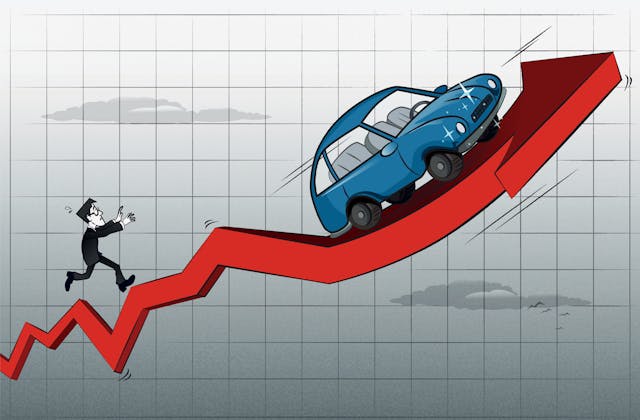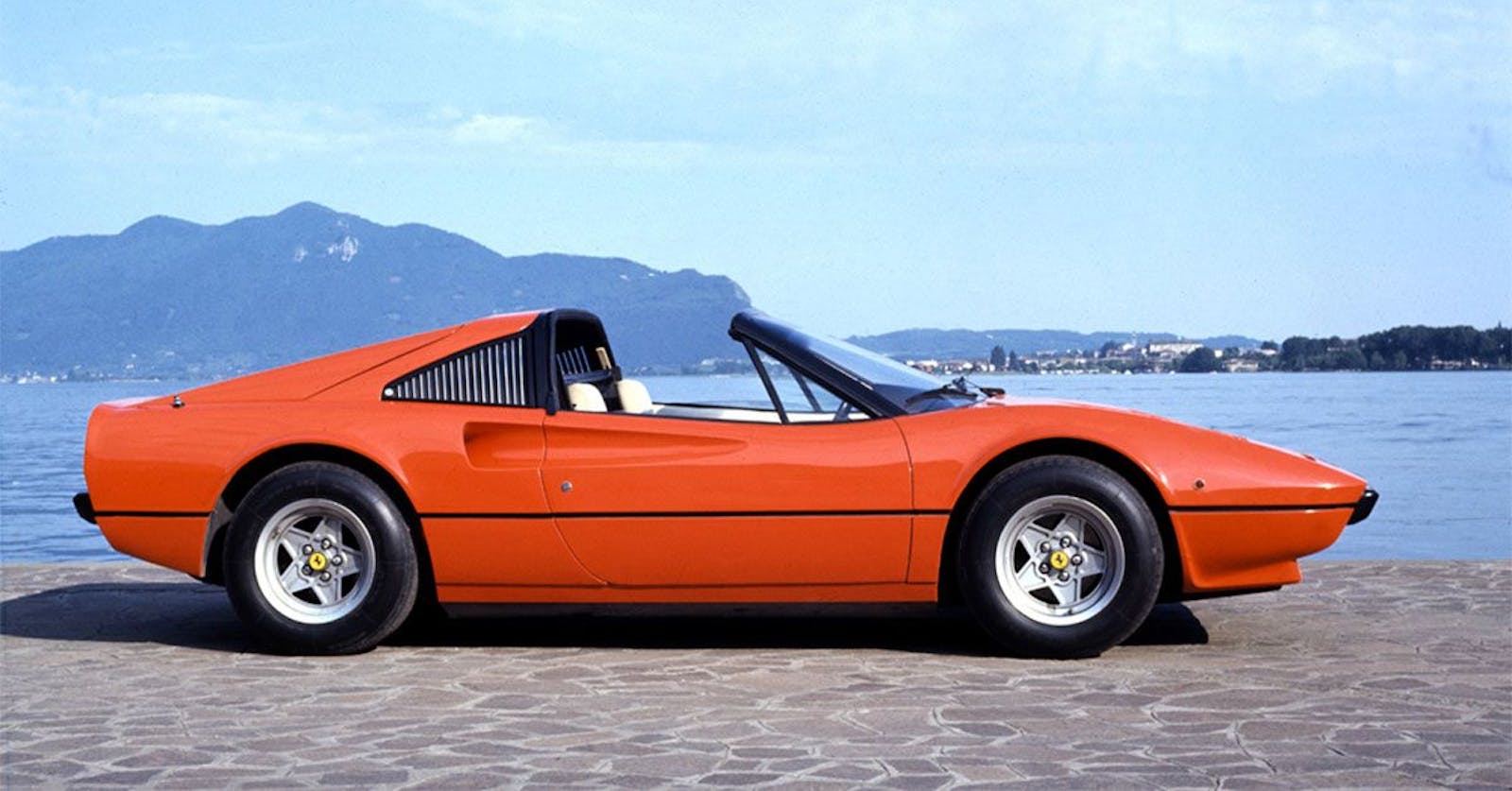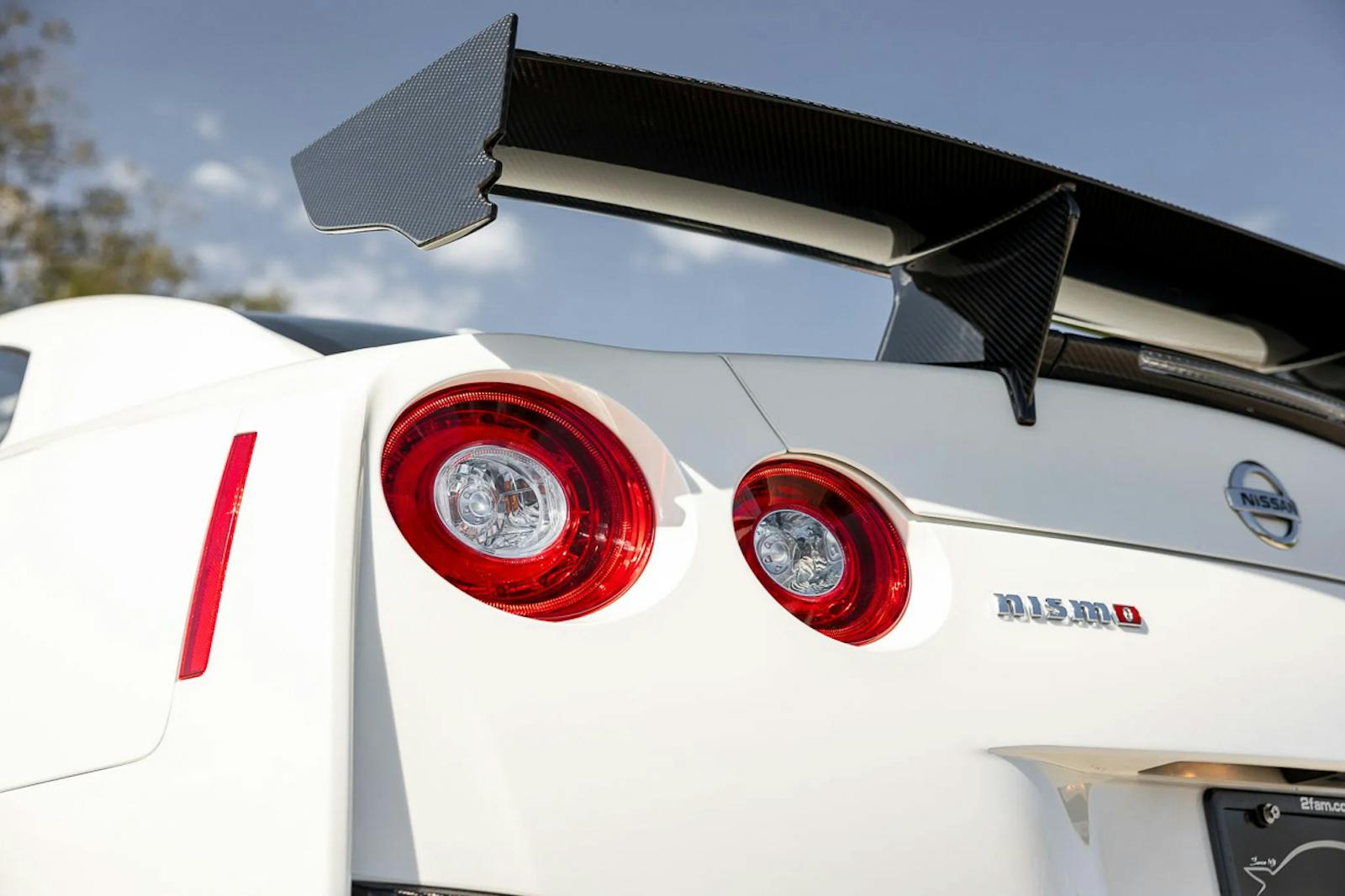Inflation affecting vintage car prices? A rusting $5775 Miata gives us pause
Inflation is most galling and apparent when it hits stuff that seems like it should be be affordable. The $5 gallon of gas, the $15.50-a-month Netflix subscription. Earlier this month, Bring a Trailer sold the vehicular equivalent of a $10 Little Caesars Hot-N-Ready: a $5775 “beater” Miata.
Relative to $200K Porsche 912s and $350K Toyota Mega Cruisers, the sum isn’t that impressive. In fact, it’s the least-expensive Miata sold on the popular online platform this month. Yet when you consider the details—the car was an automatic with rust coming through the rear rocker panels—the mind reels. Ten years ago, this was a “$2500 OBO” Craigslist listing with a grainy rear three-quarters shot and the owner’s finger obscuring the license plate. Just three years ago, the Hagerty Price Guide would have pegged an automatic car in this condition somewhere around $4000.

Like that improbable $28 Taco Bell order you may have read about, there are confounding factors here. The Miata has been rising in value for a decade, and Bring a Trailer is known for attracting eyeballs and big bucks. (Also, who doesn’t like Mariner blue?) The Miata isn’t the only affordable car that has become markedly less so: The Hagerty 100, which is what we call our index that tracks values of the hundred vehicles in our price guide most insured by Hagerty, briefly crested $50,000 during the summer. That’s up some 25 percent from 2019.
In recent months we’ve wondered to what extent the widespread gains we’ve observed on the classic car market is appreciation versus inflation, and when buyers will (or should) blink. Affordable cars in particular show how complicated the answer can be.
Data from the Hagerty Price Guide offers some context: In the particular case of the Miata, values have generally kept ahead of price increases overall.
That makes sense since there’s a lot driving up Miata values that has little to do with the general economy, including interest from younger collectors (Gen-Z now accounts for nearly 1 out of every 5 people who call Hagerty for a quote on one) and the simple fact that they’re not as common as they once were.
In contrast, the Hagerty 100, which mainly consists of established classics like Ford Mustangs and VW Beetles, seems much more closely tied to the ebbs and flows of the greenback.
Even so, the very fact that their values have more or less “floated” with inflation is encouraging. Indeed, this is why the finance set recommends pouring money in tangible investments during inflationary times: at the very least, they tend to do better than cash stuffed under your mattress.
Of course, that assumes you have cash to spare.
“People on the lower end of distribution may be tempted to save more money—even though it’s self-defeating [because the dollar is losing value],” explained Daniil Manaenkov, an economic forecaster at the University of Michigan.
This brings us to an important and harder-to-quantify aspect of inflation—how it hits you in particular versus someone else.
“In times of uncertainty and inflation, people at different income levels react to inflation differently,” said Manaenkov.
Wealthy folks not only have lots of money; they typically own a lot of stuff—homes, art, wine, gold, and yes, cars—that insulates them from inflation. When the dollar depreciates, Manaenkov said, they often snap up more of these assets, both as a hedge against inflation and because they assume prices will continue to rise, and waiting will cost more. That helps explain why million-dollar classics, which were quiet for much of the pandemic, have gone wild lately.
For those on lower rungs of the economic ladder, things are not so simple.
“For people who are retired, these are probably fairly tense times at the moment,” noted Manaenkov. “Once you’re on fixed income, you either go back to work to supplement what has happened to your retirement account or you basically try to adjust your consumption.”
Collectors still in the workforce may have more options. Younger workers in particular have seen big bumps in pay, which might mean more money in their pockets for, say, cheap Miatas. Might is the key word, as they face the same increases in basic living commodities as anyone else. They also are more likely to rent, own fewer assets, and generally have smaller cushions in the face of uncertainty. Indeed, just about everyone short of the super-rich is sensitive to the unease that comes with inflation—not knowing, say, if gas prices will spike again come winter, as New York Times columnist Thomas Friedman speculates they might.
That generalized uncertainty, Manaenkov noted, is what might lead some collectors to pull back, even if they still want to participate and can afford to pay higher prices.
Indeed, the Hagerty 100 index, after nearly a year of strong gains, started pulling back over the summer. Even the Miata has paused its upward march for now. That said, a collector car, be it a $5500 Miata or a $1.5M Ferrari F50, remains as safe a bet as it was before inflation took off. Those interested in the former may simply have fewer chips to gamble.


